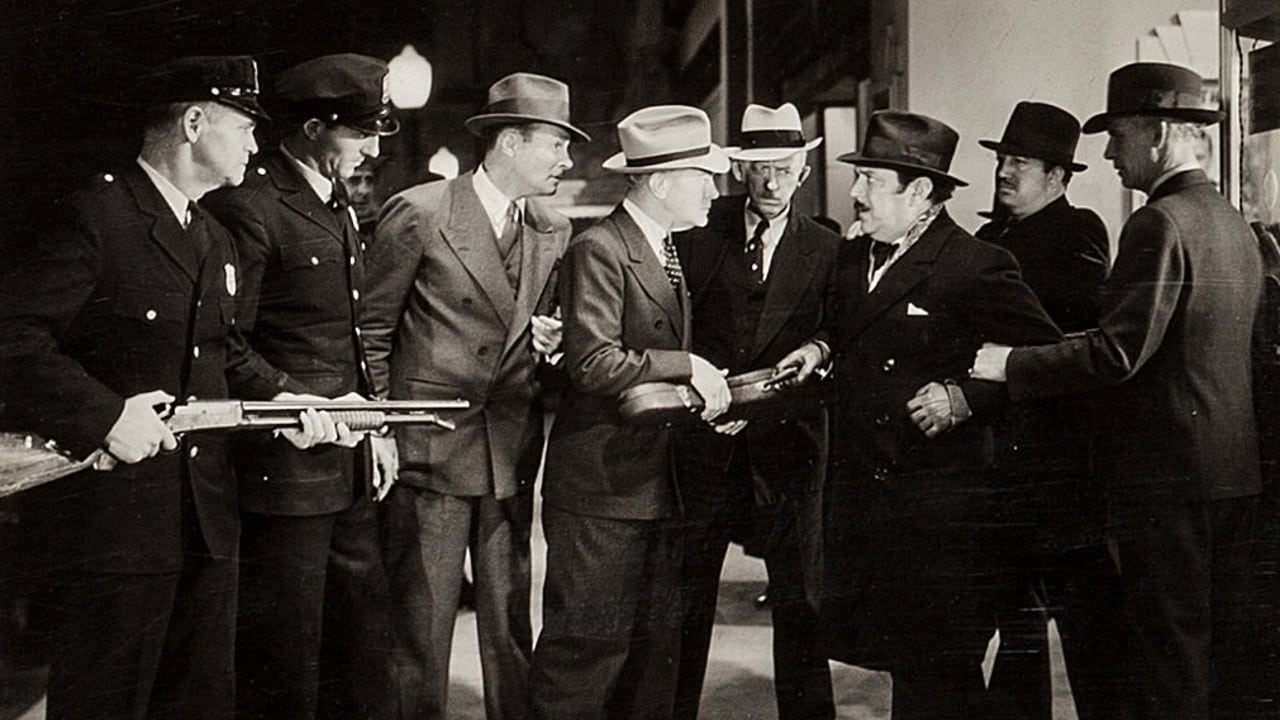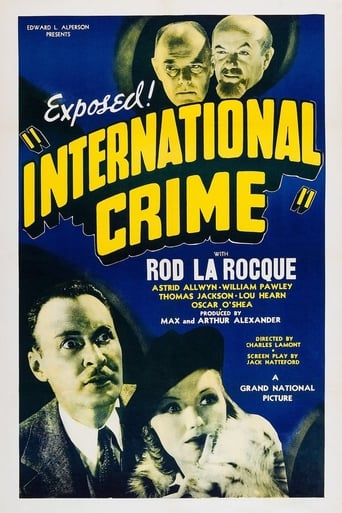

It’s not bad or unwatchable but despite the amplitude of the spectacle, the end result is underwhelming.
... View MoreOne of the best movies of the year! Incredible from the beginning to the end.
... View MoreThis movie feels like it was made purely to piss off people who want good shows
... View MoreStrong acting helps the film overcome an uncertain premise and create characters that hold our attention absolutely.
... View MoreDirector Charles Lamont and star Rod LaRocque had both been around for a LONG time in the silents. In this talkie, LaRocque is radio host Lamont Cranston, who thinks he gets a hot tip of a crime about to happen from "citizen" Phoebe Lane (Astrid Allwyn). When things don't turn out right, the cops are upset, so now its up to Cranston to solve the mystery himself. The sound and picture quality are remarkably good, as opposed to some of the other oldies showing on "Moonlight Movies" channel. It's just okay. Sub plot wherePhoebe interferes at first, but then is his ally, and it turns out she is related to the big boss publisher. Mildly entertaining, but very so-so. There are so many better things to watch...
... View MoreI enjoy this movie and have watched it several times (free on Amazon Prime). The colorful characters and some snappy dialog are what attracts me. The mystery aspects and especially Rod LaRocque's cheesy foreign accent (used in a few scenes) are not.I like Astrid Allwyn as the young, eager girl-Friday-wannabe-- slightly ditsy, but not outlandishly so. She gets off some good lines, like this: Waiter: More caviar, madame? Astrid Allwyn: Oh, no! If I eat any more of that buckshot, I'll pass out!Lew Hearn as Moe is a colorful character. He bails out Cranston, and standing outside the cell, Cranston asks how much he owes him. Moe says something like, "Is this a place to talk business? It'll be on your bill."Thomas E. Jackson is enjoyable as always, as a gruff, put-upon police commissioner. I remember him as the gruff, put-upon editor in "Nancy Drew, Reporter." And Peter Potter is memorable as Cranston's assistant, with that sleepy-sounding Oklahoma drawl of his.The mystery, the safe-cracking Honest John, and all that, is not to be dismissed, though there are some corny aspects of the plot. But all in all I like this movie and will no doubt watch it again.
... View Morethis second movie in the Shadow series is no better or worst than the first one,in my opinion.Rod La Rocque is back as Lamont Cranston.however,in this one,Cranston plays a newspaper columnist,with a column called The Shadow Says and he hosts a short radio show running through the latest crime,as the voice of The Shadow.so if you're expecting Cranston to solve this case as The Shadow,or the Shadow to make an actual appearance you might be disappointed.in this movie Cranston solves another case,this time with the assistance of Phoebe Lane(who works at the same newspaper)who he meets while pondering the case.yes,i said Phoebe,not Margo.(Margo Lane is Cranston's sidekick in the long running The Shadow radio program).
... View MoreA strange little offshoot of the Shadow mythos. Definitely the better of the two Shadow movies starring Rod La Rocque. This time, Lamont Cranston is a crusading crime journalist who writes a daily column entitled "The Shadow"! He does not wear the famous cloak and slouch hat, has no mind powers and everybody knows that he is the Shadow. His assistant is Phoebe Lane, who is cute and dizzy and not much relation to the superior Margo Lane at all. The film is based on the wise-cracking style of "The Thin Man" and occasionally delivers a genuinely funny moment. But for the most part this is a pretty dull murder mystery involving foreign agents. Completely lacking in the film noir, supernatural atmosphere of the radio series and the magazine. A curiosity but hardly The Shadow we know and love.
... View More